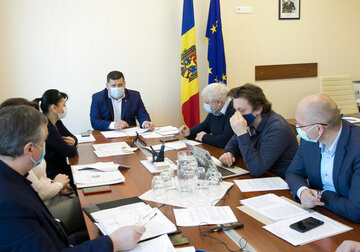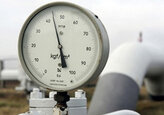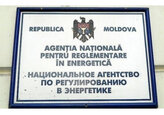
The Parliament of Moldova is preparing to consider in the second reading a draft law on a new methodology for calculating prices for basic oil products.
This was reported by the press service of the supreme legislative body, noting that the Commission on Economy, Budget and Finance at a meeting on Thursday approved a report on the draft amendments to the Law on the Oil Products Market, which provide for the establishment of new general rules for the calculation and application of prices for basic oil products. The bill was introduced as a legislative initiative by a member of the commission, an independent deputy Alexandru Oleinic. He called the amendments to the Law on the Oil Products Market, introduced by the parliament in July 2018, which left the determination of prices for oil products to importers and sellers of oil products, unreasonable. The new initiative is aimed at ensuring the most fair prices for gasoline and diesel fuel, taking into account fluctuations on international and regional exchanges (Platt`s). Prices will be calculated for 1 liter, separately for each type of product and imported batch. The suggested frequency of recalculation is 14 days. According to the author of the initiative, the bill will lead to the creation of a fairer competitive environment in the market, especially in relation to small companies, since price regulation will exclude potential abuse by large operators by actually dictating prices and, accordingly, excluding unfair competition (with the characteristics of cartel agreements). As InfoMarket reported earlier, the Foreign Investors Association (FIA) earlier in a letter addressed to the country's parliament, noted that the proposed amendments to the Law on the Oil Products Market will lead to a reduction in imports of oil products and threaten the supply of fuel to Moldova. The letter says that the bill, which was adopted by the parliament in the first reading, does not take into account all the decisive factors for the formation of an adequate price for basic oil products and liquefied gas. For example, higher coefficients are not taken into account when purchasing fuel of the EURO 5 category. Importers of this fuel will be placed in economically disadvantageous conditions and will have to sell more expensive goods at a reduced price. As a result, it will be more profitable for companies to refrain from selling diesel fuel of the EURO 5 category. The Argus DAF Brest quotes used in the draft law cannot be applied, since no importer in Moldova buys liquefied gas at such prices. Moldovan companies import most of all from Russia, Kazakhstan and Romania, so it is more expedient to use the quotes Argus DAF Ukraine (eastern border of Ukraine) or Argus RBS (Romania, Bulgaria, Serbia). Moreover, from April to September each year there is a shortage of liquefied gas, therefore, to cover the needs, this type of fuel is purchased from Russia at a fixed price. Accordingly, situations may arise when the purchase price of liquefied gas will be higher than the quotations of Argus DAF Brest. The FIA also notes that the maximum retail prices for basic petroleum products cannot be determined separately for each imported batch, since sometimes up to 100 import operations are carried out. It is noted that it is necessary to clarify the specific commercial margin, since it does not cover the cost of transporting petroleum products; important economic indicators are not taken into account (discounts provided by companies, the cost of stocks of petroleum products in warehouses, the annual increase in salaries and payments to compulsory medical insurance and social insurance funds, an increase in local tax rates, etc.), etc. FIA member oil importers have also asked parliament to ensure transparency and invite market participants to all public consultations, working group meetings and technical meetings on project implementation. // 08.04.2021 — InfoMarket






